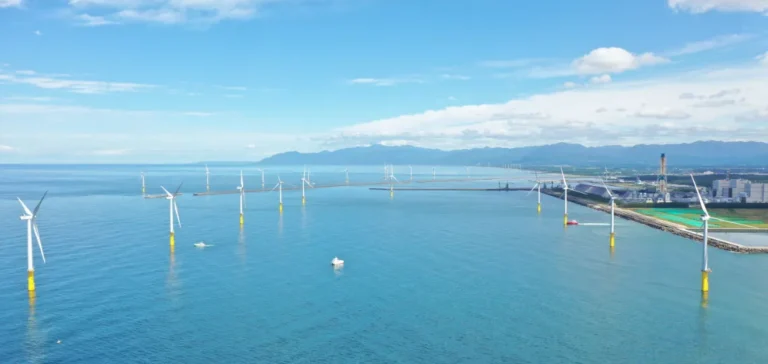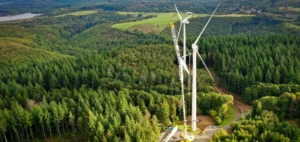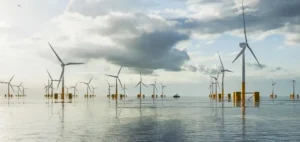Offshore wind stakeholders in France are facing paralysis caused by the country’s political instability. The slowdown of tenders, combined with growing regulatory uncertainty, is directly affecting project developers and turbine suppliers. The Multiannual Energy Programming plan (Programmation Pluriannuelle de l’Énergie – PPE3), the government’s roadmap for the post-2026 period, has yet to be finalised, blocking investment prospects.
Delays jeopardise industrial ambitions
France currently has only 3 gigawatts of offshore wind installed or under development, far behind the United Kingdom’s 16 GW already in operation. The government had announced plans to quadruple this capacity, but the tenders required to achieve this goal are more than a year behind schedule. In September, a 1 GW project on the West Coast failed to attract any bidders, due to the complexity of the site and a lack of clarity around government support.
Traditionally, winners of tenders received financial support from the state. This is no longer the case, making projects less attractive amid rising costs and global competition. Two new tenders totalling 12 GW are still pending. Initially scheduled for the end of 2024, they are now expected to be awarded in autumn 2026.
Industry players scale back operations
The delays are already having concrete effects on employment. Several companies in the sector have begun reducing their workforce. Jules Nyssen, President of the Renewable Energy Syndicate, confirmed that staff reductions have occurred in multiple wind energy firms. A specialised recruitment agency reported that four developers have initiated redundancy plans.
The consortium led by TotalEnergies, in partnership with RWE, was awarded a 1.5 GW project in September. However, RWE immediately announced its intention to withdraw, stating that the project’s value was lower than other international opportunities. A company spokesperson said the decision was driven by the reduced competitiveness of the French site.
Suppliers hold back amid uncertainty
Major wind turbine manufacturers operating in France, including Siemens Energy, GE Vernova and Spain’s Haizea Wind Group, did not comment on the impact of the crisis on their local operations. The Economy Ministry, which oversees energy policy, did not respond to requests for comment.
While Europe’s second-largest economy still relies primarily on nuclear power for its electricity production, the slow pace of the offshore wind sector raises questions among industrial players and foreign investors about the reliability of the government’s energy commitments.






















